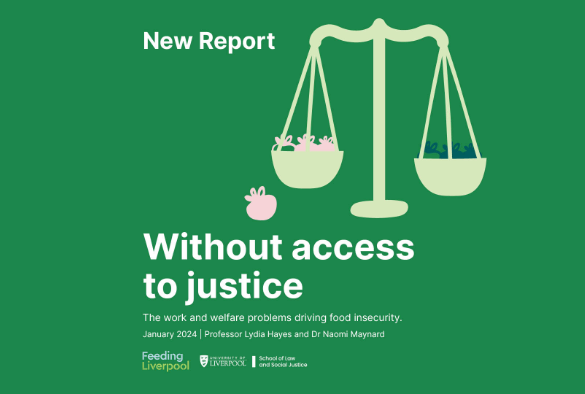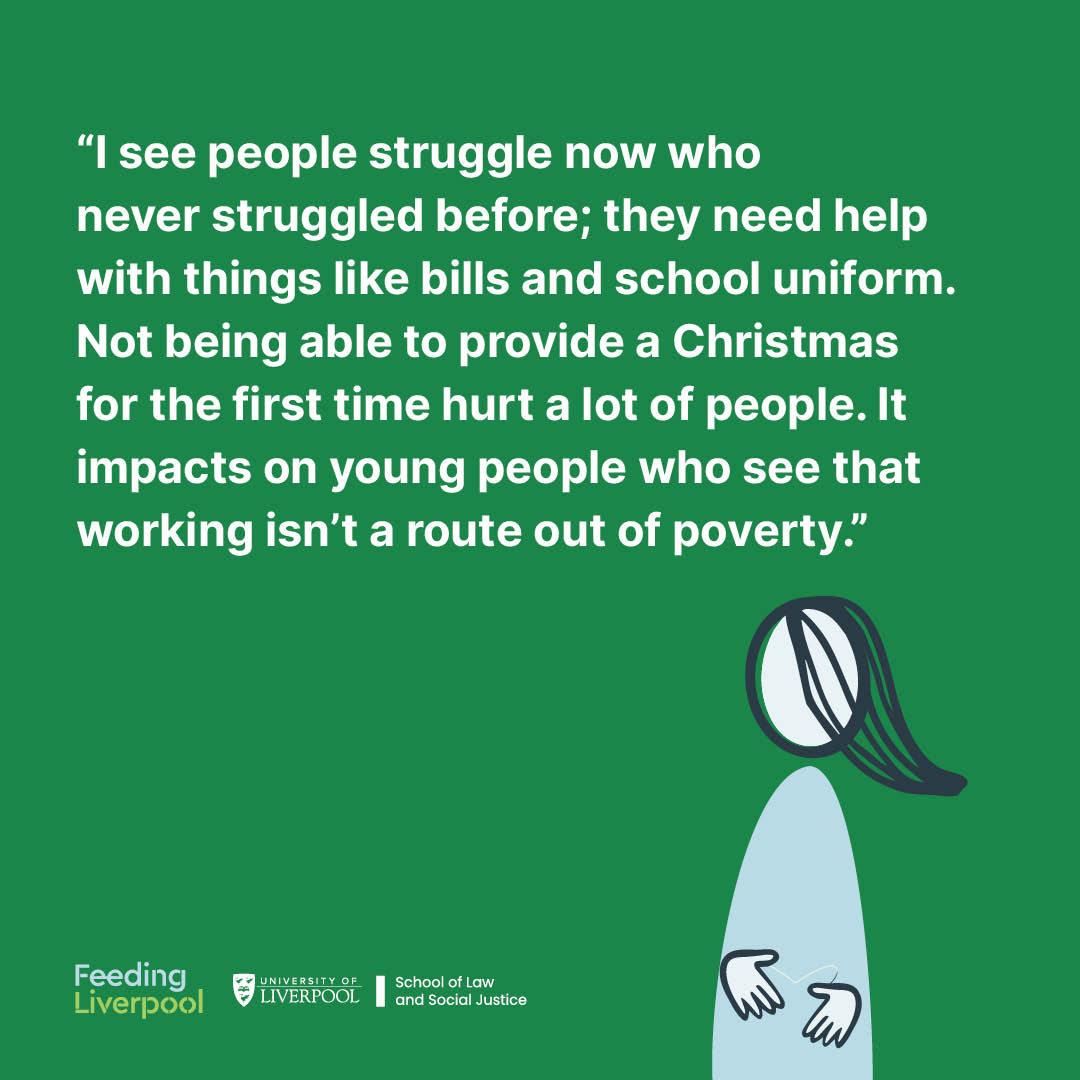
The University of Liverpool Law School will today (Wednesday 17 January) host an event to call for action to advance the recommendations of a research report to better protect workers experiencing food insecurity.
The report, in partnership with community organisation Feeding Liverpool, is based on the experience of workers in Liverpool using food banks and food pantries. Their stories about why they were food insecure were gathered by final year Law students as part of their degree studies.
The Law students were trained in providing minimum wage and welfare rights provision and then they undertook placement in food support spaces to give free legal advice and signposting. The stories students gathered on placement show that working people are facing food insecurity because of low-income driven by inadequate employment and welfare rights and difficulties in accessing the legal system.
Today’s research report ‘Without Access to Justice: The work and welfare problems driving food insecurity’ draws on these stories. Some of the stories have been made into short animations that will be shown at the launch event as well as follow up events next week in the House of Commons and online.
They include the story of Louis*, a restaurant worker and single Dad, who is on a zero-hour contract. His working hours have been dramatically cut without warning because the restaurant has fewer customers due to the cost-of-living crisis. He is hungry, stressed and worried about feeding his children. Louis is does not know if his wages are below minimum wage as he does not receive payslips, this is unlawful, but he is too scared to raise the issue in case his hours get cut even more as a result.
Louis’ situation is unfortunately the reality for growing numbers of workers, with a record high of 1.8 million people reported to be on zero-hour contracts in 2023. In Liverpool, 1 in 3 working age adults are experiencing food insecurity, with over 2,100 emergency food parcels being distributed by organisations who are members of Feeding Liverpool each week in the city.
The researchers have made a series of recommendations to Government, the Department of Work and Pensions, local authorities, employers, and trade unions to respond to the range of work and welfare problems that were found to worsen situations for people of working-age on low incomes.
The recommendations include making welfare benefits less complicated to access, revising the minimum wage and working with employers to create jobs that are more supportive of good mental and physical health.

Professor Lydia Hayes, Professor of Labour Rights, at Liverpool Law School, who co-authored the report said: “For many decades, UK welfare policy has been based on the idea that ‘work is the best route out of poverty’. However, the work undertaken by our students in food support spaces across Liverpool has highlighted that, for many, paid work does not ‘pay’ and people in low paid and insecure jobs are being pushed into deeper levels of poverty. There needs to be real systemic policy change to ensure that people aren’t going hungry.
“That’s why our research, launched today makes wide-ranging, targeted recommendations to help workers protect themselves from food insecurity and why we’re bringing people together from across different sectors to discuss how the recommendations of the report can be implemented.”
Co-author Dr Naomi Maynard of Feeding Liverpool said, “Food support spaces across our region do incredible work but the risk of food insecurity is being made worse by a deficit of justice: people can’t draw on their legal rights if they don’t know what their rights are or if they don’t have access to appropriate signposting, support, or legal representation. For many, their income from work and welfare provision still doesn’t provide enough to make ends meet.”
The report, ‘Without Access to Justice: The work and welfare problems driving food insecurity’, will launch at the School of Law and Social Justice Wednesday 17 January 2024. Representatives from Liverpool City Council, charities, trade unions, Government departments and businesses will discuss how action can be taken locally to implement some of the recommendations of the report. Find out more and book your place to attend here.
*Names used in the research are pseudonyms to provide anonymity for service users.
The full research findings in the report is available to read online here.